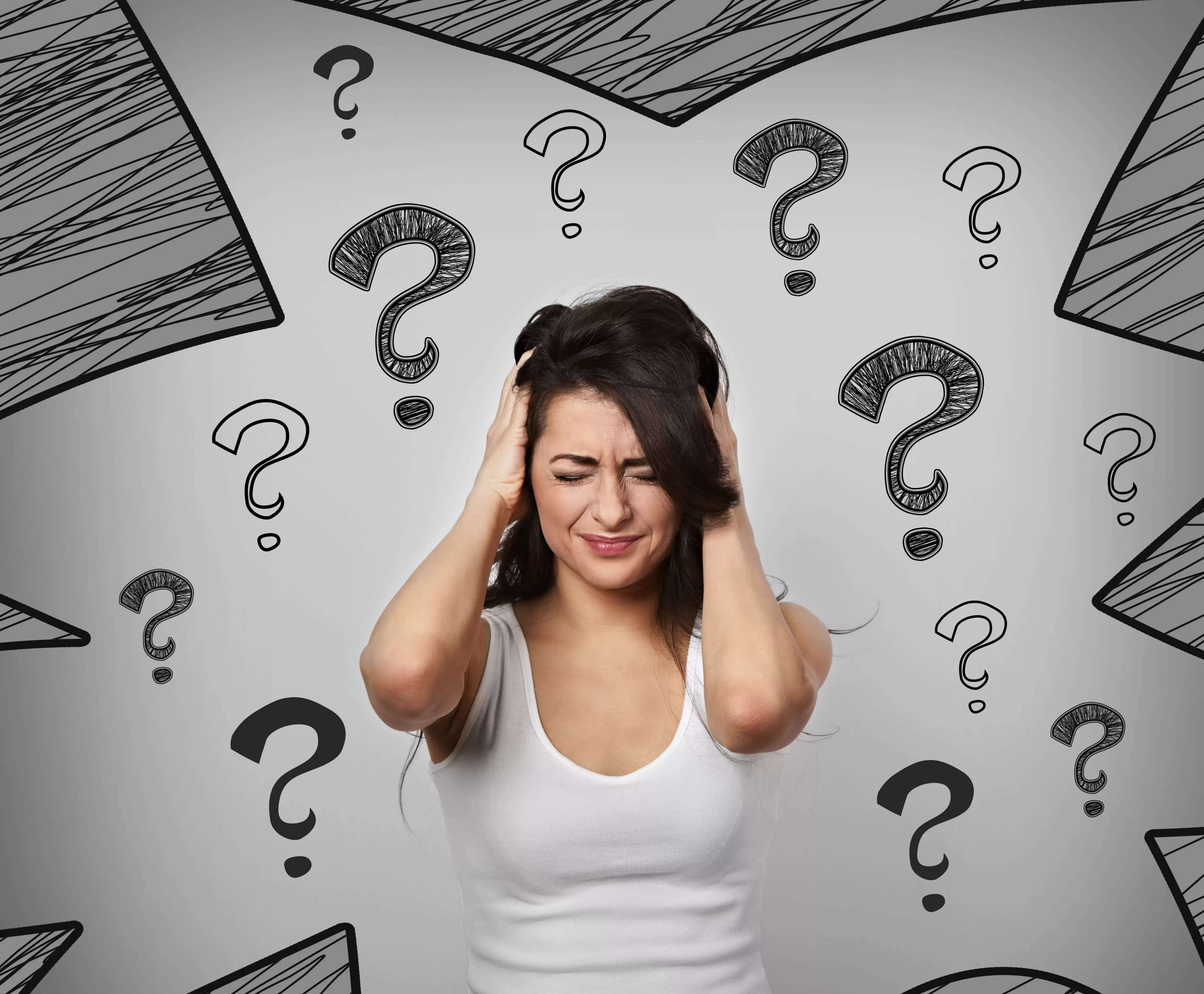Stress Vs. Anxiety: Difference, Symptoms, Treatment And More

Have you ever found yourself saying "I'm stressed" when you really meant "I'm anxious"? Or perhaps you've talked about experiencing anxiety without ever receiving an official diagnosis?
In everyday conversations, stress and anxiety tend to be used interchangeably as buzzwords. However, mental health experts emphasise that these words have distinct meanings and should not be used as substitutes for each other.
So, what precisely sets stress and anxiety apart? And how significant is this distinction?
What is Stress?
Stress can be defined as a state of worry or mental confusion triggered by challenging circumstances known as stressors. These stressors can include a wide range of situations, such as work problems, financial instability, or disagreements in friendships.
The experience of stress is a natural response by our bodies to these situations, indicating that there is a challenge or threat that requires attention.
When stress begins to set in, the body releases cortisol, commonly referred to as the stress hormone. Aside from its role in stress response, cortisol also serves other functions, including regulating metabolism, controlling blood pressure, and reducing inflammation. In terms of the stress response, cortisol is recognized for boosting energy levels and enhancing alertness, sometimes pushing us to the extremes of a "fight or flight" response.
Physical symptoms of stress
- Impaired immune system - Stress can weaken the immune system, making individuals more prone to fatigue, increased susceptibility to illnesses, and slower recovery from injuries or illnesses. Prolonged stress may also heighten the risk of conditions such as heart attacks or strokes.
- Gastrointestinal distress - Stress can cause an upset stomach and lead to symptoms like nausea.
- Reproductive system disruption - Stress can affect the reproductive system, potentially causing irregularities such as missed periods.
- Sleep difficulties - Stress can result in trouble sleeping or irregular sleep patterns.
- Muscular tension - Stress often leads to muscle tension, causing discomfort and stiffness.
Emotional symptoms of stress
- Experiencing irritability, anger, or being overwhelmed
- Inability to relax
- Having racing thoughts
- Feeling sadness
- A decrease in one's sense of humour
What does Anxiety mean?
Anxiety refers to the presence of symptoms associated with stress, whether or not there is a specific cause for the stress. Anxiety is considered a behavioural health diagnosis that can be treated. Stressors, or sources of stress, can act as triggers that bring about episodes of anxiety. Sometimes, stressors can lead to anxiety by eliciting feelings of being overwhelmed or catastrophic thoughts that persist even after the challenging situation has been resolved. However, anxiety can also arise without any identifiable stressor being present.
Physical symptoms of anxiety
- Trembling
- Excessive sweating
- Shaking
- Feeling flushed
- Experiencing cold sweats
- Rapid heartbeat
- Muscular tension
- Nausea or vomiting
- Breathing rapidly and shallowly
- Difficulty breathing
- Changes in vision
- Muscle twitches
Emotional symptoms of anxiety
- Feeling irritable, angry, or overwhelmed
- Inability to relax
- Persistent contemplation of specific matters
- Racing thoughts
- Sadness
- Decreased sense of humour
Causes of stress and anxiety
Stress commonly arises as a result of either physical or mental pressure. This pressure can stem from significant life changes such as:
- Relocating to a new place
- Beginning a new school or job
- Dealing with an illness or injury
- Caring for an unwell or injured friend or family member
- Experiencing the loss of a loved one
- Getting married
- Having a baby
Managing stress and anxiety
There are numerous therapeutic interventions available to address stress and anxiety effectively. To determine the most suitable approach for your individual symptoms, it is advisable to consult a mental health professional.
Here are a few examples of the approaches they may suggest:
Cognitive Behavioral Therapy (CBT): This method focuses on identifying anxious thoughts and behaviours and transforming them into more positive and constructive ones.
Exposure Therapy: Gradual exposure to anxiety-inducing triggers is employed in this technique. By gradually confronting and becoming accustomed to these triggers, individuals can learn to manage their anxiety more effectively.
Acceptance and Commitment Therapy (ACT): ACT provides tools and techniques to help individuals accept and tolerate negative emotions, allowing them to maintain psychological flexibility and engage in actions aligned with their values.
Based on your symptoms, medication might be suggested by healthcare professionals to alleviate anxiety symptoms. Commonly prescribed medications for anxiety include selective serotonin reuptake inhibitors (SSRIs) like sertraline or paroxetine.
Occasionally, clinicians might propose benzodiazepines such as diazepam or lorazepam, but these treatments are typically employed temporarily due to the potential for dependence.
Conclusion
Although it's normal to experience a certain level of stress and anxiety in life, it's crucial to acknowledge when these emotions start having adverse effects. If you find that your stress and anxiety have become overwhelming and difficult to handle, seeking assistance from a mental health expert can assist you in acquiring fresh coping strategies.
Disclaimer: The above content is for informational purposes only and should not be used as a substitute for the advice of a qualified physician or doctor. The Company does not vouch for or endorse any of the above content, and disclaims any and all warranties, express or implied, relating to the same.
.png)